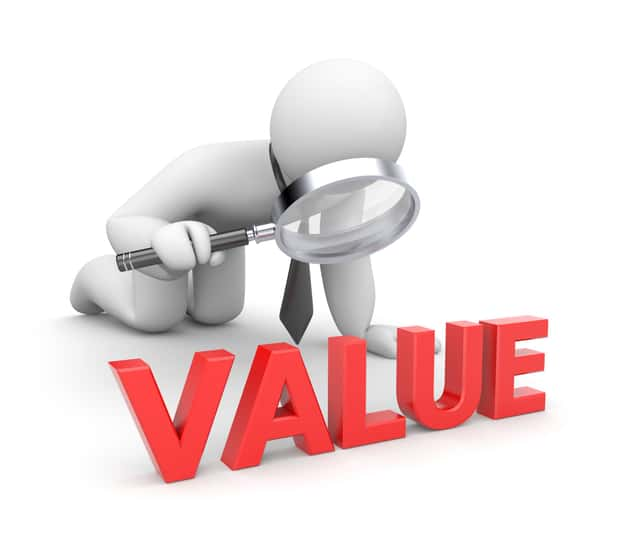GlaxoSmithKline PLC (GSK - Get Rating) ranks as one of the largest firms by total sales in the pharmaceutical industry. The company wields its might across several therapeutic classes, including respiratory, oncology, antiviral, vaccines, and consumer healthcare products. GSK uses joint ventures to gain additional scale in specific markets like HIV and consumer products.
For instance, in August 2019, GSK and Pfizer (PFE) merged their consumer healthcare unit into a new joint venture, with GSK owning a controlling stake of 68% in the venture. However, the company is planning a change with its consumer unit. The company plans to split itself into two standalone companies.
The new company, under GSK, will be a biopharma company focusing on developing new treatments. GSK is going to separate its consumer healthcare segment into a standalone company next year. The spin-off will allow GSK to focus on drug development.
GSK’s diversified base and its presence in various geographical areas should help support its top line. Its expansion into markets such as Japan and emerging markets should provide additional growth. The company has already expanded its presence in emerging markets through the acquisitions of product portfolios from companies like Bristol-Myers Squibb (BMY) and UCB (UCBJY).
The company has also had successful new product launches. For instance, its new products such as Nucala for severe eosinophilic asthma and Bexsero for meningitis vaccine are doing well so far. In fact, they have become key growth drivers for the firm. In addition, three new drugs, including the Shingrix vaccine to treat shingles, Trelegy Ellipta to treat COPD, and Juluca for HIV, are all seeing success.
The success has more than made up for a decline in sales for established drugs due to generic erosion. GSK also continues to add new HIV therapies into the mix. In 2019, Dovato, a single tablet regimen of Tivicay, was approved for treatment in HIV patients. The following year, Rukobia was approved for heavily pre-treated HIV. This year, Cabenuva, a long-acting injectable regimen of GSK’s cabotegravir and Johnson & Johnson’s (JNJ) Edurant, was approved for the treatment of HIV-1 infection in virologically suppressed adults.
GSK also has a strong pipeline. Promising candidates include long-acting cabotegravir, pending approval for HIV prevention (PrEP), otilimab for rheumatoid arthritis and severe COVID-related pulmonary disease, and gepotidacin for uncomplicated urinary tract infection and urogenital gonorrhea.
The company has also established multiple partnerships with companies to develop COVID-19 treatments. It is working with CureVac to develop next-generation mRNA vaccines and Sanofi to make an adjuvanted COVID-19 vaccine. The FDA recently granted emergency approval for therapeutic antibody treatment sotrovimab, developed with Vir Biotechnology (VIR).
In total, the company plans on launching more than twenty new products or extensions by 2026. Management is optimistic about ten of them having blockbuster potential. The successful development and commercialization of these pipeline candidates should help boost the company’s revenue growth going forward. GSK has an overall grade of A, translating into a Strong Buy rating in our POWR Ratings system.
The company has a Growth Grade of A as earnings have grown an average of 72.9% per year over the past five years. GSK also has a Value Grade of A, which isn’t surprising, with a low forward P/E of 12.41. Its EV/EBITDA is also low at 8.9. We also provide Momentum, Stability, Sentiment, and Quality Grades for GSK, which you can find here.
GSK is ranked #4 in the Medical – Pharmaceuticals industry. For more top stocks in this industry, click here. Speaking of the Medical – Pharmaceuticals industry, GSK looks strong compared to many of its peers. If we look at a well-known cannabis pharmaceutical company, Canopy Growth (CGC), we can see that it has an overall grade of F and a Strong Sell rating. Plus, both its Growth and Value Grades of D are also concerning.
Click here to checkout our Healthcare Sector Report for 2021
Another peer of GSK is Ionis Pharmaceuticals, Inc. (IONS). While not as bad as CGC, IONS has an overall grade of D, which translates into a Sell rating. The company also has a Growth Grade of D and a Value Grade of C. These grades are well below GSK’s A grades.
GSK is just one of the stocks in my POWR Value portfolio. That’s where I combine my many years of investing experience with the Top 10 Value Stocks strategy, which has +38.63% annual returns, to bring investors the best value stocks for today’s market.
If you would like to see the current portfolio of 14 stocks and be alerted to our next timely trades, then consider starting a 30-day trial by clicking the link below.
About POWR Value newsletter & 30 Day Trial
Want More Great Investing Ideas?
GSK shares were trading at $39.77 per share on Friday afternoon, up $0.22 (+0.56%). Year-to-date, GSK has gained 12.84%, versus a 22.38% rise in the benchmark S&P 500 index during the same period.
About the Author: David Cohne

David Cohne has 20 years of experience as an investment analyst and writer. Prior to StockNews, David spent eleven years as a consultant providing outsourced investment research and content to financial services companies, hedge funds, and online publications. David enjoys researching and writing about stocks and the markets. He takes a fundamental quantitative approach in evaluating stocks for readers. More...
More Resources for the Stocks in this Article
| Ticker | POWR Rating | Industry Rank | Rank in Industry |
| GSK | Get Rating | Get Rating | Get Rating |






